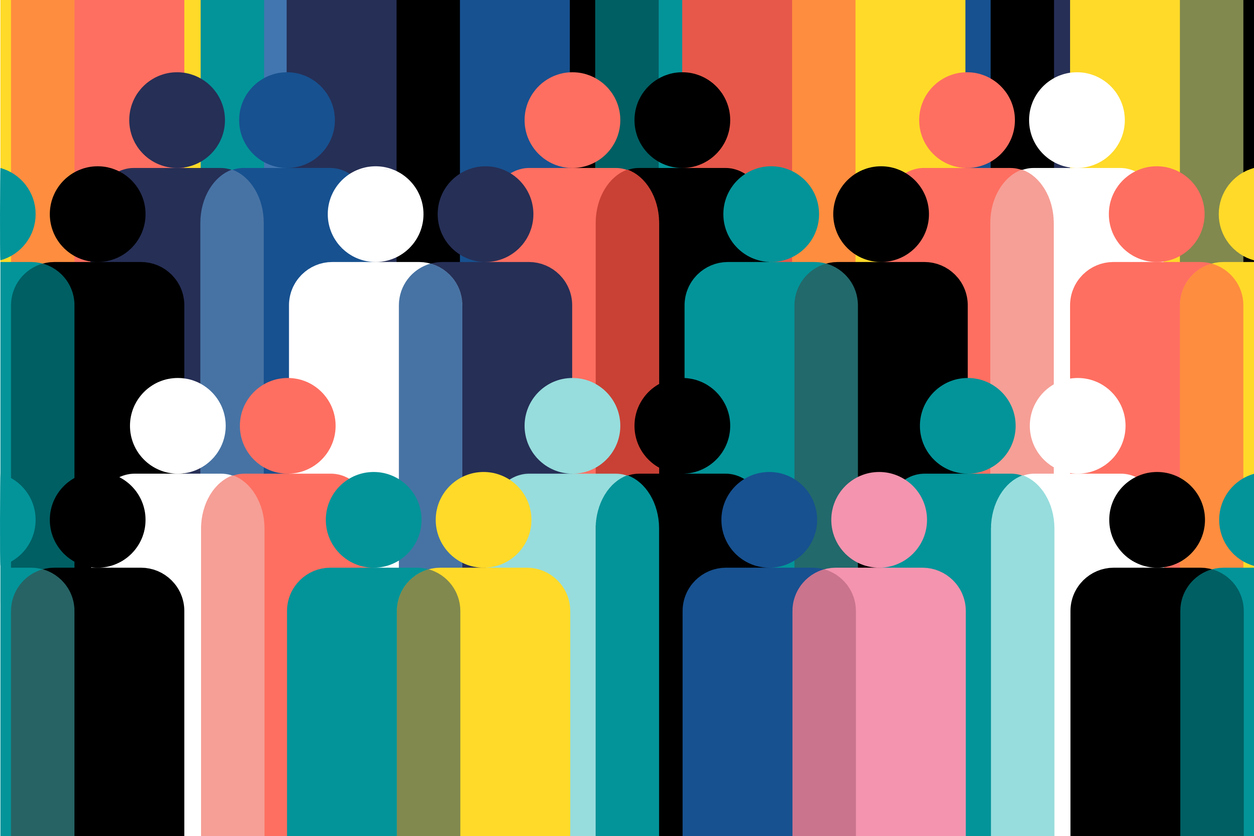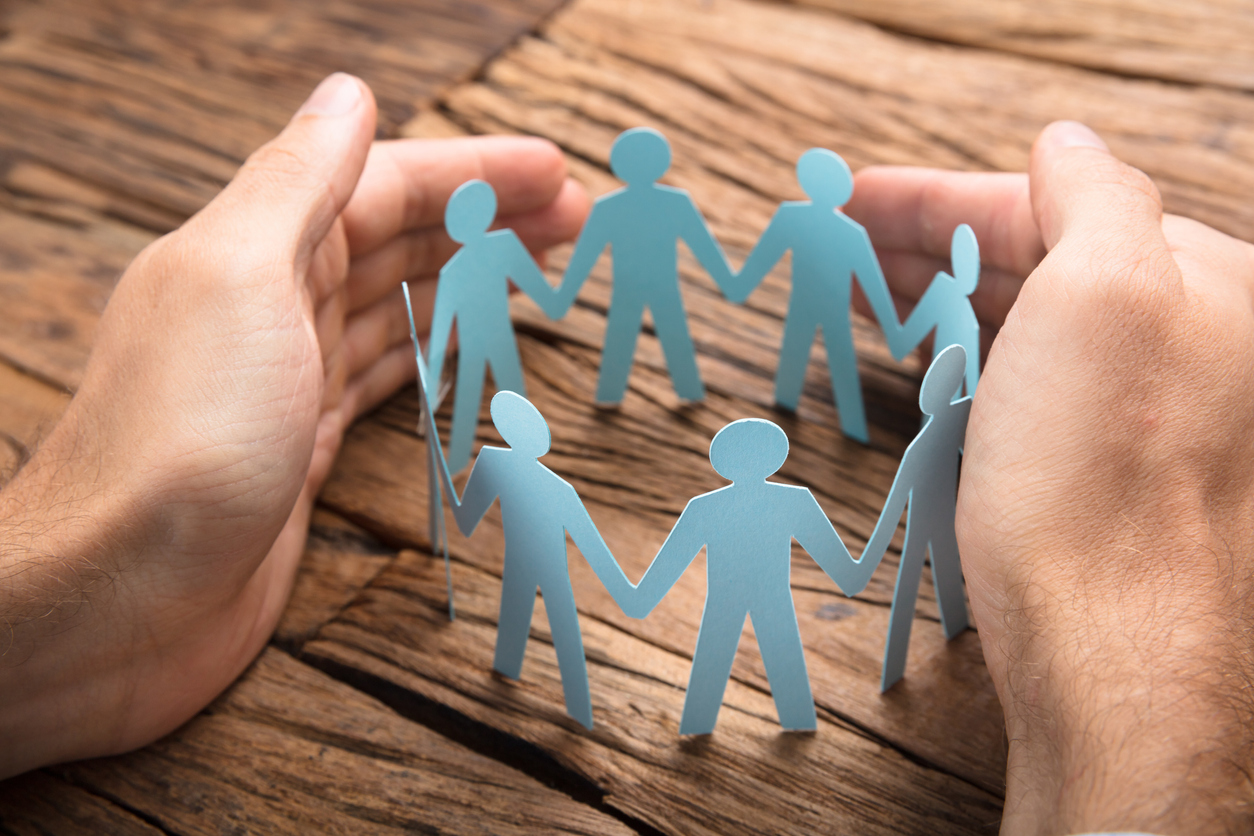
This is a moment for peer support. It offers a way to help alleviate the current mental health crisis. Worldwide, stress and anxiety increased by 25% during the pandemic. In the US, depression rates tripled early in the pandemic, rising from 8.5% to 27.6%. Although constraints eased in 2021, depression rates rose another 5.2% that year.
At the same time, mental health issues have increased among children and teens. In the 10 years prior to 2019, depression rates rose by 40% in high school children. The pandemic accelerated this trend, as children experienced grief, loss, isolation, and loneliness. The crisis became so severe that several pediatric health groups declared a National Emergency of Children and Adolescent Mental Health in 2021.
All of these trends mean the demand for therapy is surging even as many therapists have no room for new patients. The therapist shortage compounds the mental health crisis. In this situation, peer support is a great tool to help people cope before, during, and after a mental health crisis.
Peer support brings many benefits
One definition of peer support is: “giving and receiving social, practical, and emotional support between two or more people, based on sharing knowledge.” Programs incorporating peer support can be in-person, online, or combinations of the two. Generally, peer support programs benefit people in many ways. They can increase feelings of belonging. Online peer support has been shown to increase the feeling that you’re a part of a community, which reduces loneliness. Such programs also provide a way to compare perspectives and get feedback on your experiences. In addition, peer support programs are effective partners with traditional mental health treatments. Some researchers think peer support is the future of mental health care.
Online peer support extends these benefits to people with mobility issues or those who live in rural areas. Ending the travel hurdles that may be a part of attending in-person meetings means more people can take advantage of the program. In addition, online programs are comfortable for people who are ill-at-ease in person. They allow people to meet their needs for personal contact without being face-to-face. Equally important, many people find peer support more useful than advice from an expert; people like getting practical advice from others like them. This is especially true during recovery from a crisis. Overall, online peer support programs are associated with increases in self-efficacy and self-management, higher self-reported outcome scores, improved relationships with clinicians, lower healthcare usage, and improved engagement with treatments. Finally, in peer support settings, people have the opportunity to share what they have learned with others, which has healing benefits itself.
Summary
To summarize, online peer support communities help across the entire span of mental health needs. They can increase feelings of belonging at any stage in someone’s life. Peer support supplements sessions with mental health professionals. Online support can encourage people as they learn new coping skills on the way to recovery. Peer support programs can lessen the impact of supply and demand problems in accessing mental health services, making them a perfect fit for this moment of crisis.
Resources:
- COVID-19 pandemic triggers 25% increase in prevalence of anxiety and depression worldwide (The World Health Organization).
- Depression Rates in US Tripled When the Pandemic First Hit–Now, They’re Even Worse (The Brink).
- Pandemic accelerated youth mental health crisis (Harvard Magazine).
- U.S. Surgeon General Issues Advisory on Youth Mental Health Crisis Further Exposed by COVID-19 Pandemic (US Department of Health and Human Services).
- AAP-AACAP-CHA Declaration of a National Emergency in Child and Adolescent Mental Health (American Academy of Pediatrics).
- This is why it’s so hard to find mental health counseling right now (The Washington Post).
- Online peer to peer support: Qualitative analysis of UK and US open mental health Facebook groups (Digital Health).
- Why do young people use online forums for mental health and emotional support? Benefits and challenges (British Journal of Guidance & Counselling).
- The future of mental health care: peer-to-peer support and social media (The Journal of Epidemiology and Psychiatric Sciences).
- Exploring the Value of Peer Support for Mental Health (Psychiatry Advisor).
- Digital Peer Support Mental Health Interventions for People With a Lived Experience of a Serious Mental Illness: Systematic Review (JMIR Mental Health).
STAY IN THE LOOP
Subscribe for our news and updates.
DEI has evolved into DEIB - Diversity, Equity, Inclusion, and Belonging. At its core, the goal of building communities is to create a sense of belonging. Framed around health and wellbeing, online peer health communities are a great strategic fit for organizations.
Effective content moderation is critical for successful peer support sites. Done right, it ensures that your site feels welcoming and enhances your brand.
Creating a sense of belonging and community is crucial and worthwhile. Learn what it means for the members brought together by Ability Online. 30 years and counting!
45% of employees are caregivers which can impact their health and workplace performance. Offering peer support is an effective way to help ease their burden.



